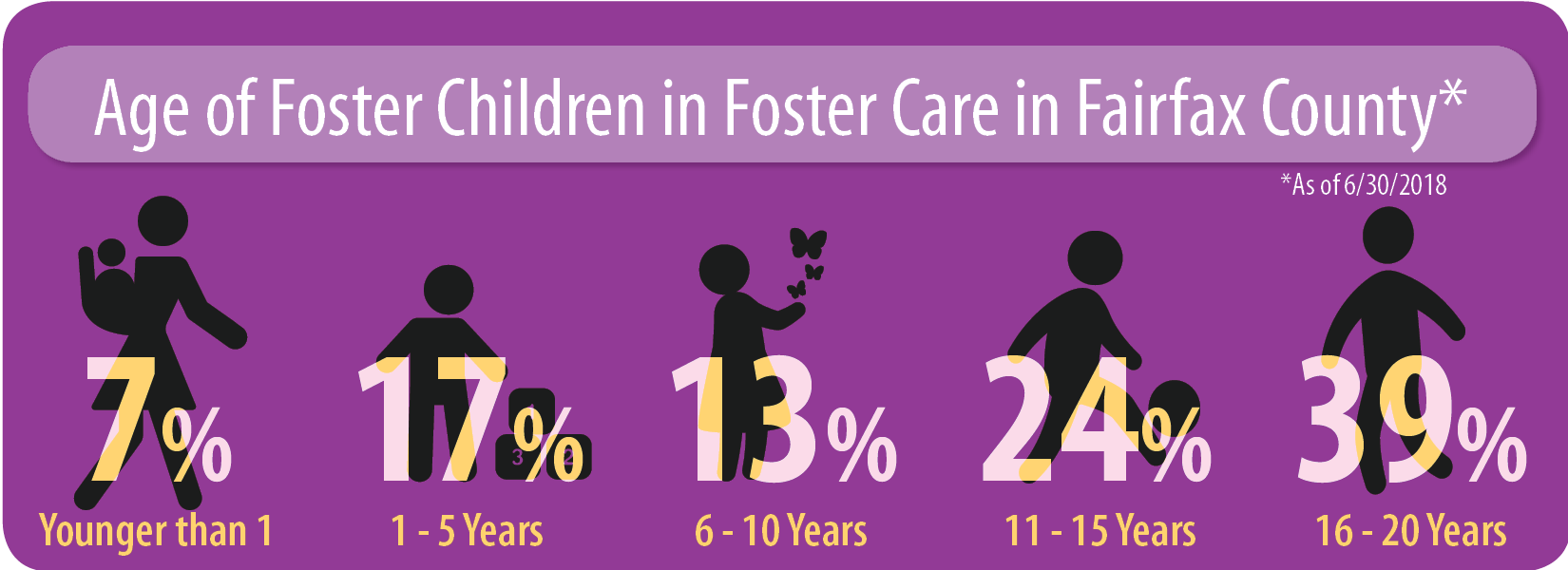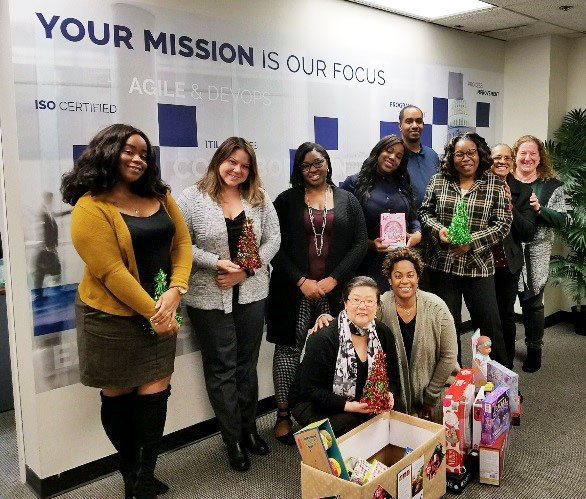
Welcome to the 2019 January issue of Foster Family News, a monthly newsletter for current and potential Fairfax County foster parents.
| Table of Contents | |
|---|---|
|
|

Believe it or not, it’s January--a time of reflecting on another year past and looking forward to new beginnings ahead. Speaking of the year past, how did you do with your foster training hours in 2018? If you’re like me, it’s sometimes hard to find the time–even though we know it’s important, and more importantly, mandatory. This year, I’m resolving to start earlier and be more consistent in doing my training hours.
Continuing education shouldn’t be a burden; in fact, if we’re doing right, it’s just the opposite. We all know foster parenting can be tough work and comes with unique challenges. To avoid burnout, it’s so important that we continue to learn and develop new skills and strategies along this journey. As you probably know, as Fairfax County foster parents, we’re required to do 10 hours of training each year. But you may not be aware of how many options there are to get these hours done.
The county offers a variety of highly relevant in-person sessions throughout the year. Not only are these great learning opportunities on timely topics, but they’re also a good way to get to know some of your fellow foster parents and to engage with county staff. To help foster parents plan ahead, the county has recently made an effort to compile the sessions into an annual calendar. If you need a copy, reach out to Eileen Dixon with the DFS Resource and Support program. You should be receiving emails from Eileen with details in advance of each training opportunity, so be on the lookout and start marking your calendars now!
Did you know you can also access Fairfax County-approved classes online through Foster Parent College? If you are a certified foster parent in the county, you should have received a link with a login. If you didn't, or if you lost it, contact your resource worker. Class topics range from physical aggression to supporting normalcy, maintaining healthy birth-family relationships, and much, much more. Just keep in mind, the majority of your mandatory training hours still need to be in person. One tip from personal experience: If you and your spouse/partner are taking the online training together, you will both need to login in individually with your unique user IDs in order for both of you to get credit.
There are also several non-profit organizations outside of the county that provide education for foster and adoptive families, and many of these trainings can count toward your mandatory annual hours.
Are you following Formed Families Forward? If not, you should be! Visit formedfamiliesforward.org for new training videos designed for educators and families on the topic of trauma. You can also download the free 2018-19 Resource Directory featuring hundreds of organizations, agencies, and other resources for adoptive, foster, and kinship families raising youth with special needs.
Another great resource for training and support services for foster, kinship, and adoptive families is our friends at NewFound Families Virginia. In fact, the organization recently partnered with Maid Brigade through their Angels program to provide a free house cleaning to a Fairfax County foster family. Congratulations to Cheryl Cain of Herndon, who was the lucky winner of the drawing! For more information on their services, be sure to follow NewFound Families Virginia on Facebook and check out their https://newfoundva.org/.
Finally, for any of you, like me, who have finalized an adoption from foster care in Virginia since July 2017, did you know you are eligible for case management services for up to 12 months from the date of finalization at no cost to you? Funding is provided by the Virginia Department of Social Services via the Center for Adoption Support and Education (C.A.S.E.). C.A.S.E. also offers training, therapy, and conferences for adoptive families. I had an opportunity to attend my first C.A.S.E. conference in November and it was fantastic! Learn more at adoptionsupport.org.
Wishing you and your families all the best for a healthy and happy 2019! Hope to see you at some upcoming training sessions!
Bethany Shively
President
Fairfax County Foster Care and Adoption Association (FCFCAA)


 Question: How much can I spend on clothing for children placed in my home? What is reimbursable?
Question: How much can I spend on clothing for children placed in my home? What is reimbursable?

 The following trainings are for Fairfax County foster parents only.
The following trainings are for Fairfax County foster parents only. What do you want to see in Foster Family News?
What do you want to see in Foster Family News?